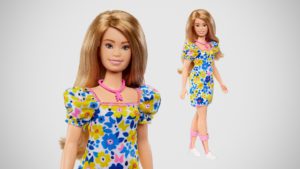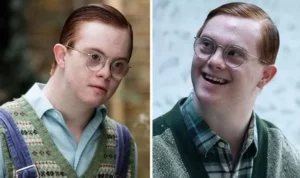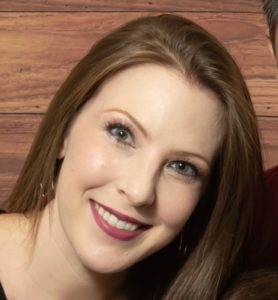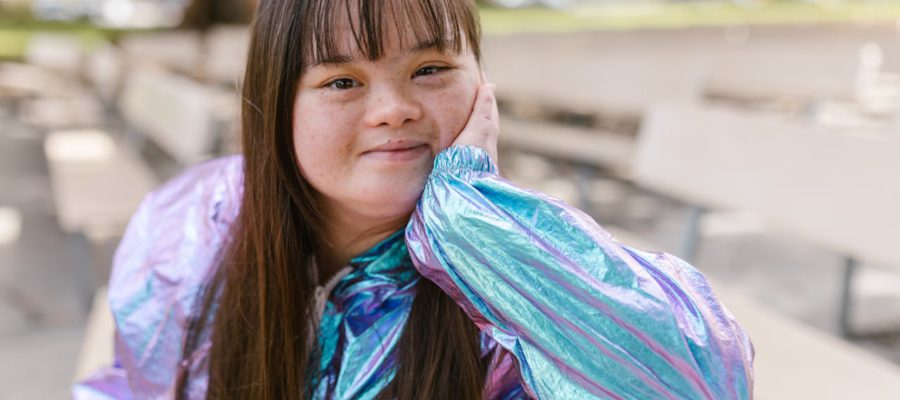Last year in October, I intended to write a blog for Down Syndrome Awareness month. I began to compile information about the tragedy of children with Down Syndrome being aborted in staggering numbers and to frame my thoughts about our global hypocrisy in championing diversity while simultaneously celebrating the prenatal deaths of the diverse. Then the October 7th Massacre occurred and rocked the world. I chose to write about that foreign calamity instead, and then holiday chaos ensued, followed by a personal tragedy that knocked my blogging off the map entirely. I’m glad to return now to the keyboard to “pen” the blog that I had originally purposed to write.
When I say that abortion of children with Down Syndrome (or Trisomy 13) is celebrated, it might strike you as hyperbolic. You might think, “Surely it happens, but it’s a difficult situation, and nobody celebrates it.” Unfortunately, that’s not always true. As someone active in these discussions, I see a range of pro-choice reactions online and in print elsewhere: from grieved but feeling that it was a necessity, to neutral, to pleased that the abortion made way for “healthy pregnancies” to follow and that other children wouldn’t be saddled with a sibling’s care, to national celebration. In an example of the latter, in 2017 there were a series of triumphant reports that Iceland and Denmark had “eradicated” Down syndrome in their population. CBS News then ran a story taking viewers “Inside the country where Down syndrome is disappearing” and titled their piece “Iceland is on pace to virtually eliminate Down syndrome through abortion.”
CBS’s last phrase gave the game away. Down Syndrome itself isn’t being eliminated in Iceland or Denmark. People who have it are just being eliminated prior to birth. There are now only 1 or 2 people with Down Syndrome born in Iceland each year, and these births are typically accidental. There’s a word for this: eugenics.
In the United States, between 67-85% of children with Down syndrome are aborted each year, while in England the statistic is about 90%. In a 2020 article, a British mother named Emma Mellor said that she was offered abortion 15 times by her medical care team after her daughter’s prenatal Down syndrome diagnosis and that the final offer was made at 38 weeks- which is of course a completely viable, full term child. In fact, many abortions done for a Down syndrome diagnosis are late term since it’s sometimes only detected after anatomical ultrasounds reveal telltale signs. It’s also a sobering fact that some parents report being offered terminations after testing indicated a Down syndrome diagnosis only to turn it down and end up with a completely healthy child. This brings up a topic that nobody wants to discuss: the horrifying reality that a small percentage of completely healthy children are aborted each year because of wrongful diagnoses and bad medical advice.
However, a completely healthy child is no more valuable than one with a physical challenge or disability. Once the child is born, we all instinctively know this, and there have been beautiful efforts in recent years to center and normalize physical differences in ad campaigns and programming. It’s not uncommon now to stroll through Target and see a clothing model with vitiligo, a limb difference, or Down syndrome proudly wearing the most stylish seasonal offerings.
Barbie recently partnered with the Down syndrome society to create a doll with Down syndrome- the first of its kind. She has a cute face with almond eyes, a flowered dress, and little leg braces. I thought the creation of the doll was a wonderful thing.
We’re also seeing actors with Down syndrome featured in significant roles- like the beloved character Reggie Jackson, played by Daniel Laurie on BBC’s hit series Call the Midwife. Portrayals like this are a positive thing for society and a great thing for people living with Down syndrome.
 The question is: why are we becoming more tolerant of people with physical and mental differences in our society while also allowing less of them to live? Why doesn’t this tolerance extend to the womb?
The question is: why are we becoming more tolerant of people with physical and mental differences in our society while also allowing less of them to live? Why doesn’t this tolerance extend to the womb?
I think there are so many reasons. Firstly, we live in a society that prioritizes the self over the family. In many ways, it would be easier and “better” for the parents of a disabled child not to have to rear that child. When the parents’ needs are centered, the child loses. Some will say that the parents are actually prioritizing the child because a life of disability isn’t worth living, but I think that argument falls flatter in the case of Down syndrome than it does with some other more vicious and debilitating conditions. While people with Down syndrome can have significant health complications and live shorter lives, I think most of us have experienced these people as some of the happiest, most positive, most optimistic people we’ve ever known. With proper familial and societal support, their life experience might be even better than an “average” person.
Another reason so many of these pregnancies are ended is simple and understandable fear. We are all afraid of the unknown and the difficult. Though it’s counterintuitive, sometimes having more information makes doing the brave thing harder. Before prenatal testing was as common, many people wouldn’t have had the information to even make this choice, and so they’d welcome a child regardless of a medical difference. These days, we have the ability to confront so many fearful diagnoses before the child is born, and we are even pressured to terminate any pregnancy that is deemed imperfect.
When I was pregnant with my son, I was told that he was at a higher risk of having a complication (like a hole in his heart or other problem) because of my autoimmune disease. The doctor told me that if that turned out to be the case, “we’ll discuss the options.” I told him that we wouldn’t be needing any options other than medical care for me and the baby, and he said no more about it. My son was healthy, but I wonder if he would have brought up my “options” again had any of those fears come to fruition? I suspect so.
That leads to the third reason abortion numbers are so high for children with manageable disabilities- pressure from doctors. Instead of the first reaction being, “Here’s how we can help you with this diagnosis, and here are the options we can offer you and your baby,” the first reaction seems to be, “This is a disaster. Here’s how you can terminate the pregnancy.” Many women report that they are even bullied by their doctors when they refuse to do so, either treated with contempt the rest of the pregnancy or even forced to move their care to another provider. These doctors often fail to even explain the abortion process to the women or the basics about fetal development. This isn’t even a fair choice. The women are not being presented all the options or all the facts, and they’re fighting against “expert” opinions and medical pressure.
My fourth and last suspicion is that people simply aren’t exposed to enough people with disabilities. Ad campaigns and Barbie dolls are good (and I hope to see more of them), but as more people with disabilities have their lives ended before birth, less of them live amongst us in society. This causes both fear of people with physical or mental differences and also fear of being different oneself by having a child who doesn’t fit the mold. People know very few other parents with disabled kids, and they don’t want to be the only one. They don’t even know how to navigate it. The best thing we can do is help remove the stigma by encouraging people with disabilities and engaging with them ourselves.
When I was young, my mom and dad volunteered to coach a Special Olympics softball team. There were people with many medical challenges on the team, but most team members were adolescents and adults with Down syndrome. My parents took our whole family out to the field for practices and games, running the bases with the players, backing them up in the field, and cheering for them. My parents chose to do this while my dad was working full time as a busy doctor and while my mom was handling a toddler (and the two of us older girls). This was a sacrifice of their time that I think they made specifically so that we girls would learn to know and love people who were different than we were, and it worked. I’ve always had a deep love for people with Down syndrome after that experience.
I hope that everyone can celebrate this Down Syndrome Awareness Month not only by cheering for people in concept, but also by cheering for their inherent worth and their most basic right to life.
I’ll close with a poem by Isaac Watts, which was popularized and often quoted by Joseph Merrick, who suffered from Proteus Syndrome and was known as the “Elephant Man”:
Thanks for reading, and don't forget to Click here to Subscribe!“Tis true my form is something odd,
But blaming me is blaming God.
Could I create myself anew,
I would not fail in pleasing you.If I could reach from pole to pole,
Or grasp the ocean with a span,
I would be measured by the soul,
The mind’s the standard of the man.”
About the Author

|
Jackie Chea is a blogger from San Antonio, Texas who holds a B.A. in Psychology and an M.A. in Community Counseling from the University of Texas at San Antonio. She writes on political and cultural issues from a conservative, religious standpoint. She lives in the Lone Star State with her husband, Nick, and their 7-year-old son, Lincoln. |


Facebook Comments